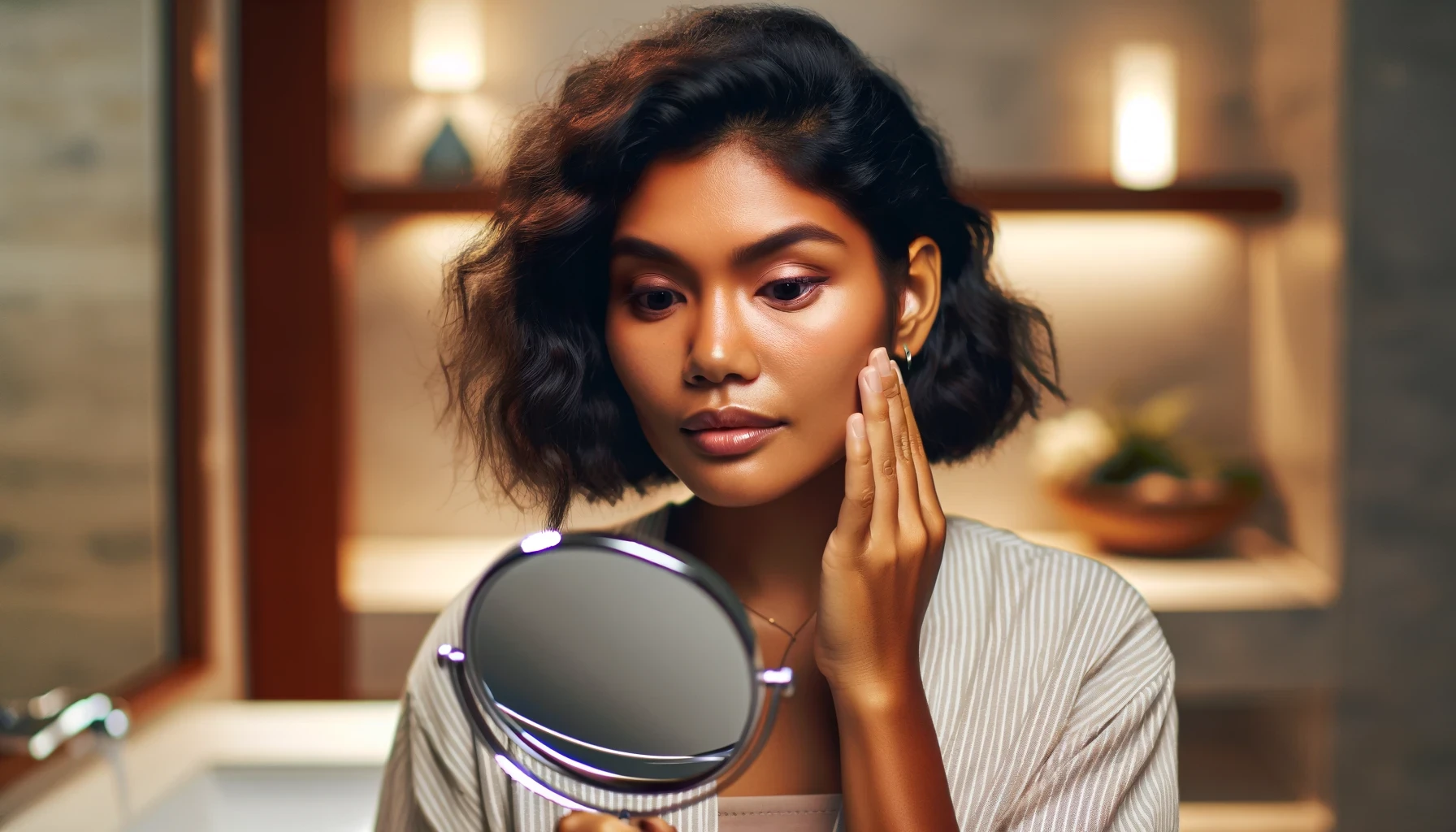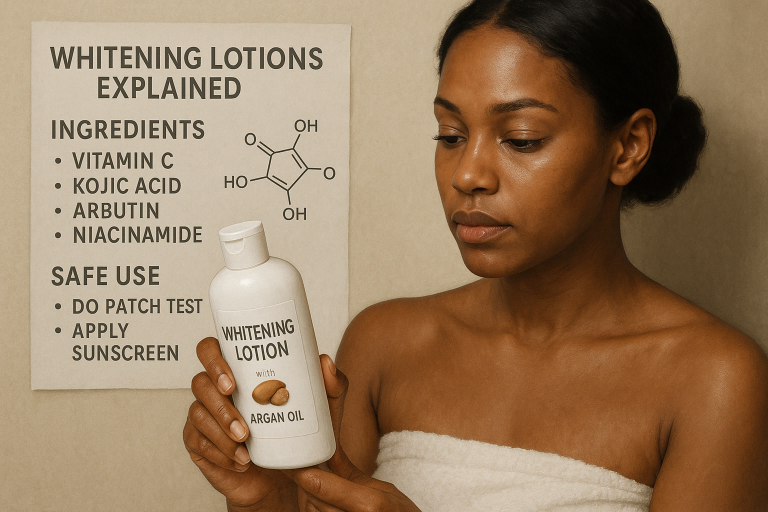Black Skin Care: Must-Have Tips for Radiant, Healthy Skin

- Black Skin Care: Must-Have Tips for Radiant, Healthy Skin
- Understanding the Unique Characteristics of Black Skin
- Gentle Cleansing: The Foundation of Black Skin Care
- Hydration and Moisturization: Key to Radiance
- Sun Protection: Essential for Preventing Hyperpigmentation
- Targeted Treatments for Hyperpigmentation and Uneven Skin Tone
- Avoiding Over-Exfoliation and Irritants
- Embracing a Holistic Approach: Diet and Lifestyle
- Consistency is Key
Black Skin Care: Must-Have Tips for Radiant, Healthy Skin
Black skin has a unique beauty and resilience that distinguishes it from other skin types. However, it also requires special care to maintain its natural glow, softness, and health. Understanding the specific needs of black skin can help in crafting a skincare routine that enhances its radiance and tackles common challenges such as hyperpigmentation, dryness, and sensitivity. Whether you are new to black skin care or looking to refine your regimen, these essential tips will guide you toward achieving vibrant, healthy skin.
Understanding the Unique Characteristics of Black Skin
Before diving into specific care tips, it’s important to recognize what makes black skin unique. Generally, black skin tends to have a richer melanin content, which provides natural protection against UV rays and slows down the aging process. However, this also means that black skin can be prone to hyperpigmentation and uneven skin tone when exposed to damage or inflammation. Additionally, black skin may sometimes appear dry or dull due to fewer lipid content in the outer skin layers.
Addressing these distinct traits with a tailored skincare approach can make all the difference in promoting a glowing and healthy complexion.
Gentle Cleansing: The Foundation of Black Skin Care
Cleansing is a crucial step in maintaining skin health. For black skin, it’s essential to use gentle cleansers that effectively remove dirt and excess oil without stripping the skin of its natural moisture. Harsh soaps and cleansers can disrupt the barrier function, leading to increased dryness and irritation.
Look for sulfate-free, hydrating cleansers formulated with soothing ingredients such as aloe vera, glycerin, or chamomile. Cleansing twice daily—once in the morning and once at night—helps keep the skin fresh and prepares it for subsequent treatments.
Hydration and Moisturization: Key to Radiance
Because black skin can sometimes be prone to dryness, keeping it well-moisturized is a must. Using a rich moisturizer helps to lock in hydration, protect the skin barrier, and restore suppleness. Ingredients like shea butter, cocoa butter, jojoba oil, and hyaluronic acid are particularly beneficial.
For daytime, choose a lightweight moisturizer with added sun protection. At night, opt for a thicker cream or oil to nourish and repair the skin while you sleep. Regular moisturizing not only enhances the skin’s natural sheen but also helps reduce flakiness and dullness.
Sun Protection: Essential for Preventing Hyperpigmentation
Despite having higher melanin content, black skin can still suffer from sun damage, leading to dark spots, uneven tone, and texture issues. Applying sunscreen daily is a critical step for preserving an even complexion and preventing premature aging.
A broad-spectrum sunscreen with at least SPF 30 should be integrated into your morning routine regardless of the season. For those concerned about white cast or heaviness often associated with sunscreens on darker skin tones, mineral sunscreens with micronized zinc oxide or formulations specifically designed for darker skin are excellent options.
Targeted Treatments for Hyperpigmentation and Uneven Skin Tone
One common concern for black skin is hyperpigmentation—dark patches or spots that occur due to increased melanin production after injury or inflammation. To address this, incorporating targeted treatments that promote gentle exfoliation and inhibit melanin overproduction is effective.
Ingredients such as vitamin C, niacinamide, alpha arbutin, and licorice root extract are known for their brightening properties. Use serums containing these components consistently but cautiously to avoid irritation. Additionally, chemical exfoliants like lactic acid or mandelic acid can help remove dead skin cells and promote a more even tone, but should be used sparingly.
Avoiding Over-Exfoliation and Irritants
While exfoliation is beneficial, black skin often requires a gentler approach. Overuse of physical scrubs or strong chemical exfoliants can trigger inflammation and worsen hyperpigmentation. Stick to exfoliating no more than one to two times per week. Also, watch out for products containing alcohol, fragrances, or harsh preservatives which can dry out or irritate the skin.
Embracing a Holistic Approach: Diet and Lifestyle
Radiant skin isn’t just about topical products; overall health plays a vital role. Drinking plenty of water, eating a balanced diet rich in antioxidants (found in fruits and vegetables), and getting sufficient sleep all contribute to the appearance and vitality of your skin.
Managing stress is equally important since chronic stress can exacerbate skin issues. Incorporate relaxation techniques such as meditation, yoga, or simple breathing exercises into your daily routine for holistic wellness.
Consistency is Key
No matter which products you choose, consistency is essential. Skin typically takes around 4 to 6 weeks to show noticeable changes, so maintain your routine diligently. Regularly reassess your skin’s needs and adjust your routine seasonally or as life changes.
—
Black skin care requires mindful attention to its distinctive characteristics and challenges. By adopting gentle cleansing, deep hydration, effective sun protection, and targeted treatments for hyperpigmentation, you can enhance your natural beauty and maintain a radiant, healthy complexion. Remember to avoid harsh products, prioritize overall wellness, and stay consistent—your skin will reward you with a vibrant glow that reflects your confidence and care.

